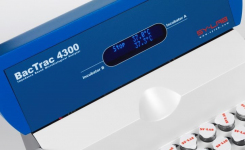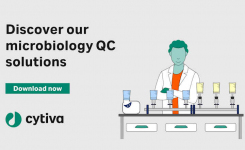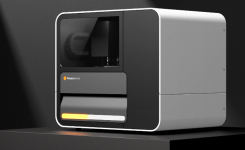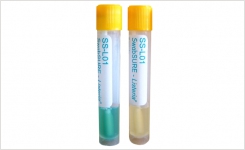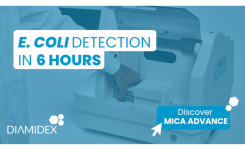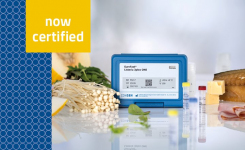New Rapid Listeria Test Provides Peace-of-Mind in Food Testing Laboratories
go back to news archives| Thermo Scientific Limited has extended the O.B.I.S. (Thermo Scientific Biochemical Identification Systems) range of rapid colourimetric tests with the launch of O.B.I.S. mono - a simple new biochemical test that differentiates Listeria monocytogenes from other Listeria species on standard diagnostic culture media. |
| All Listeria species, with the notable exception of Listeria monocytogenes, possess D-alanyl aminopeptidase (DALAase) activity. O.B.I.S. mono was developed to detect this enzyme using a non-carcinogenic substrate, D-alanyl-7-amido-4- methylcoumarin (DALA), in response to health concerns associated with b-naphthylamines (potent carcinogens traditionally used to detect aminopeptidase activity). |
Source : Thermo Scientific. View archived contact details
Posted on June 19, 2003






